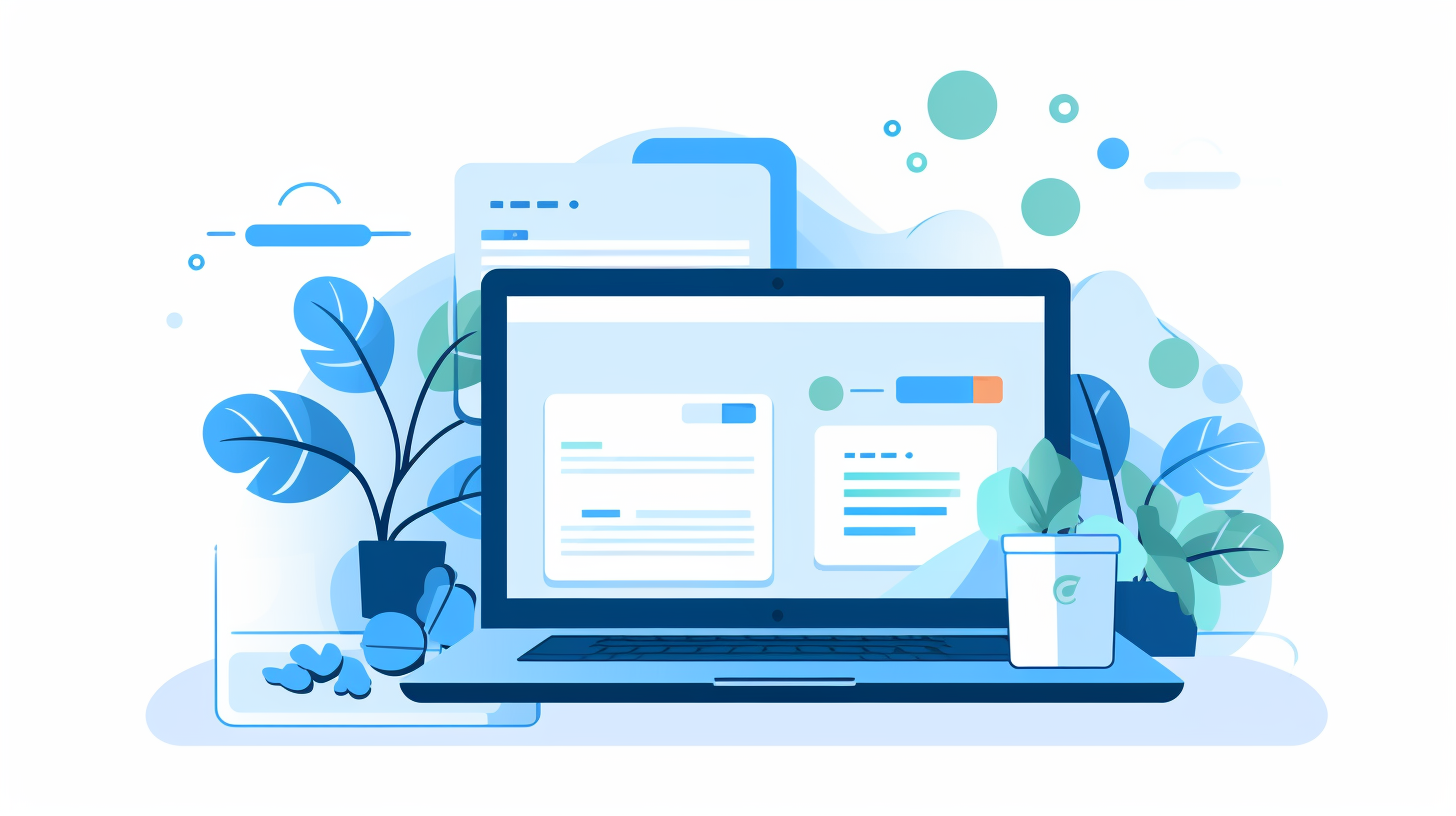Best Debt Repayment Plan Strategies – Unlock Financial Freedom

Are you struggling with debt and feeling overwhelmed? Don’t worry; you’re not alone. Many people face financial challenges at some point in their lives, and it can be challenging to know where to start. That’s where having a debt repayment plan comes in. By creating a plan that works for you, you can take control of your finances and unlock the path to financial freedom.
In this article, we’ll explore various debt repayment strategies and share practical tips to help you pay off your debt faster. We’ll also discuss the importance of developing healthy financial habits and seeking professional assistance when needed. Let’s get started!
Key Takeaways
- Having a debt repayment plan is crucial for achieving financial freedom.
- There are various debt repayment strategies to choose from, such as creating a budget, prioritizing high-interest debts, and negotiating with creditors.
- It’s important to develop healthy financial habits to maintain a debt-free lifestyle in the long term.
- Professional debt repayment assistance is available and can be helpful in some situations.
Understanding Debt Repayment Strategies
If you’re reading this article, chances are you’ve found yourself in debt and are looking for a way out. The good news is that you can take control of your finances and become debt-free with a well-designed debt repayment plan. In this section, we’ll explore various debt repayment strategies to help you achieve your financial goals.
Debt Repayment Plans

A debt repayment plan is a customized strategy designed to help you pay off your debts. It involves analyzing your debts, income, and expenses and creating a budget to allocate money toward debt repayment. Having a solid plan in place is crucial in achieving financial freedom.
“A goal without a plan is just a wish.” – Antoine de Saint-Exupéry
Debt Repayment Strategies
There are several debt repayment strategies you can implement to help accelerate the debt repayment process. One of the most effective strategies is creating a budget. This involves tracking your income and expenses and figuring out how much money you can allocate towards debt repayment each month.
Another strategy is prioritizing high-interest debts. By paying off debts with the highest interest rates first, you can reduce the amount of interest you’ll have to pay over time.
Negotiating with creditors is another powerful strategy. You can reach out to your creditors and ask for a lower interest rate, waiver of fees, or a payment plan that better fits your financial situation.
Debt Repayment Tips
To make your debt repayment plan effective, start by setting realistic goals and milestones. This will help you stay motivated and track your progress. You can also consider using a debt repayment calculator to determine how long it will take to pay off your debts based on your current situation.
Another important tip is to avoid taking on more debt while you’re in the process of repaying your existing debts. This means avoiding credit cards and other loans that might put you further into debt.
By combining these strategies and tips, you can create an effective debt repayment plan that works for you. Remember, becoming debt-free requires patience and persistence, but it is possible. Stay committed to your plan and you’ll be well on your way to financial freedom.
Effective Debt Management Strategies
When it comes to managing debt, there are several strategies available to help you reduce your outstanding balances and achieve financial freedom. Here are some of the most effective debt management strategies to consider:
| Debt Consolidation | Consolidating your debt involves taking out a loan to pay off multiple debts at once. This can simplify your monthly payments and potentially lower your interest rates, reducing the overall amount you owe. |
|---|---|
| Balance Transfers | A balance transfer involves transferring high-interest credit card debt to a card with a lower interest rate, reducing the amount of interest you accrue and allowing you to pay off your balance faster. |
| Debt Snowball or Avalanche Method | The debt snowball method involves paying off your smallest debts first, while the debt avalanche method involves prioritizing debts with the highest interest rates. Both approaches can be effective, depending on your personal financial situation. |
Ultimately, the best debt management strategy for you will depend on your individual financial circumstances. It’s important to consider the pros and cons of each approach and choose the one that works best for you.
For example, if you have high-interest credit card debt, a balance transfer or debt consolidation loan may be a good option to reduce your interest rates and simplify your payments. On the other hand, if you have multiple debts with different interest rates, the debt snowball or avalanche method may be a better fit to help you prioritize your payments and stay motivated.
Remember, the key to effective debt management is creating a plan that works for you and sticking to it. By taking proactive steps to reduce your debt, you can achieve financial freedom and enjoy greater peace of mind.
Best Ways to Pay Off Debt

There are several effective debt repayment methods that can help you become debt-free faster. Here are some of the best ways to pay off debt:
- Increase income through side hustles: Finding ways to earn extra cash can help you pay off your debts faster. Consider freelancing, selling items online, or taking on a part-time job.
- Reduce expenses: Cutting back on unnecessary expenses can free up more money that can be put towards debt repayment. Consider reducing your subscription services, cooking at home instead of eating out, or downsizing your living arrangements.
- Apply the snowball or avalanche method: These debt repayment strategies involve paying off your debts in a specific order to maximize efficiency. The snowball method involves paying off your smallest debts first, while the avalanche method involves prioritizing the debts with the highest interest rates.
To make these strategies work, it is important to create a realistic debt repayment plan that takes into account your unique financial situation. Use a debt repayment calculator to calculate the amount of money you need to pay each month, and stick to your plan as closely as possible.
Remember, paying off debt requires dedication and patience. Don’t get discouraged if your progress is slow at first. Stay motivated by tracking your progress and celebrating milestones along the way. With the right strategies in place, you can become debt-free and achieve financial freedom.
Calculating Debt Repayment with a Debt Repayment Calculator
Designing a personalized debt repayment plan can be overwhelming, especially without a clear understanding of how much to pay and when to pay it. Fortunately, debt repayment calculators can provide clarity and direction.
A debt repayment calculator is a tool that helps borrowers determine the optimal repayment plan based on their debt balance, interest rates, and monthly payments. By inputting this information, the calculator generates a detailed repayment schedule that includes the monthly payment amount, the total amount paid, the payoff date, and the interest paid.
Using a debt repayment calculator can help you visualize your debt repayment journey and track your progress along the way. It can also help you identify areas where you can adjust your repayment strategy to save money and pay off your debt faster.
When using a debt repayment calculator, be sure to input accurate information to ensure that the generated plan is as realistic as possible. Make sure to update the calculator regularly as your financia circumstances change to ensure your repayment plan remains on track.
Many debt repayment calculators are available for free online, including those provided by financial institutions and personal finance websites. Take advantage of these resources to make informed decisions about your debt repayment strategy.
Implementing Debt Reduction Strategies

Once you have created your debt repayment plan, it’s time to explore additional strategies to reduce your debt faster. Here are a few debt reduction strategies to consider:
| Strategy | Pros | Cons |
|---|---|---|
| Negotiating lower interest rates | – Can save you money on interest – May be easier than you think | – Requires some research and negotiation skills – May not always be successful |
| Seeking professional help | – Can provide expert advice and support – May offer debt management solutions | – Can be costly – Not all providers are reputable |
| Exploring debt forgiveness options | – Can reduce or eliminate debt – May provide relief for extreme circumstances | – Usually requires meeting specific criteria – May have long-term consequences on credit score |
It’s important to approach the negotiation process with creditors tactfully. Be prepared to explain your financial situation and provide evidence of your efforts to repay the debt. It may take some back-and-forth discussion, but even a small reduction in interest rates can make a significant impact on your debt repayment progress.
If negotiating with creditors seems daunting, consider seeking the help of a professional debt counselor. They can provide objective advice on the best course of action, including possibly enrolling in a debt management program. Make sure to research and choose a reputable provider to ensure you receive accurate guidance.
Debt forgiveness options, such as declaring bankruptcy or enrolling in a debt settlement program, should be viewed as a last resort. These options have long-term consequences on your credit score and may not actually eliminate all of your debt.
Remember, every little bit counts when it comes to debt reduction. Don’t be afraid to explore multiple strategies and find what works best for your unique financial situation.
Tracking Progress and Staying Motivated
One of the most critical aspects of successfully repaying debt is tracking progress and staying motivated. It can be challenging to maintain focus and discipline over a long period, but there are several strategies to help keep you on track.
Here are some debt repayment tips for tracking progress and staying motivated:
| Tip | Explanation |
|---|---|
| Create Milestones | Break the debt repayment journey into smaller milestones to make the process more manageable. Celebrate each milestone, such as paying off a credit card or reaching a specific dollar amount of debt reduction. |
| Find an Accountability Partner | Team up with a friend or family member who can help hold you accountable for sticking to your repayment plan. Share your progress regularly and ask for support when needed. |
| Join an Online Community | Connect with others who are also working towards debt repayment goals. Share your experiences, challenges, and successes on social media platforms or online forums. You may find inspiration and motivation in the stories of others. |
Remember to celebrate your successes, no matter how small they may seem. Recognizing your progress and hard work can help boost your motivation and keep you on track towards achieving your ultimate goal of becoming debt-free.
Developing Healthy Financial Habits
While creating a debt repayment plan and sticking to it is a crucial step towards achieving financial freedom, it’s also important to develop healthy financial habits to maintain a debt-free lifestyle in the long term. Here are some debt repayment tips to help you establish good financial practices:
- Create an emergency fund: Unexpected expenses can derail your debt repayment progress. That’s why it’s important to set aside some funds for emergencies. Aim for at least three to six months’ worth of living expenses in an easily accessible savings account.
- Save for future expenses: Planning for future expenses, such as a down payment on a house or a child’s college tuition, can help you avoid taking on additional debt. Create a separate savings account for these expenses and contribute regularly to reach your goals.
- Practice mindful spending: Evaluate your spending habits and identify areas where you can cut back. Consider implementing a budget or spending plan to help you stay on track.
By following these tips and practicing responsible financial habits, you can maintain your debt-free status and continue building a secure financial future. Remember, financial freedom is a journey, not a destination. Keep a positive mindset and celebrate your successes along the way.
Seeking Professional Debt Repayment Assistance
If you are struggling with debt repayment despite implementing various debt management strategies, seeking professional assistance can be a viable option. Credit counseling agencies and debt management programs are designed to help individuals regain control of their finances and pay off their debts effectively.
Credit counseling agencies offer financial counseling, debt management plans, and budgeting assistance to help individuals better understand their financial situation and create a personalized debt repayment plan. Debt management programs, on the other hand, consolidate debts into one monthly payment, negotiate lower interest rates with creditors, and provide ongoing support throughout the repayment process.
Before choosing a service provider, it’s important to do your research and verify their credentials. Look for licensed and accredited agencies, read reviews, and compare fees and services offered. It’s also crucial to understand the terms and conditions of any agreement you sign and ask questions if you have any doubts or concerns.
Seeking professional debt repayment assistance can be a beneficial step towards achieving financial freedom. With the guidance and support of a reputable service provider, you can develop a sustainable debt repayment plan and work towards a debt-free future.
Additional Resources:
Celebrating Debt-Free Success
Finally, after months or even years of hard work, you’ve paid off your debt! That’s a huge accomplishment, and you deserve to celebrate your success. Celebrating your debt-free journey is an important way to acknowledge your progress, boost your self-confidence, and reinforce good financial habits. Here are some debt-free strategies to help you celebrate:
- Plan a special meal or outing: Treat yourself to a nice dinner or weekend getaway with loved ones to mark this important milestone.
- Create a debt-free jar: Start a jar to symbolize your debt-free status and add money to it regularly or whenever you achieve a new financial goal.
- Share your story: Inspire others by sharing your debt-free journey on social media or with friends and family.
Remember, staying debt-free requires continued effort and diligence. Keep implementing the strategies that worked for you along your journey and strive to maintain healthy financial habits. You’ve achieved financial freedom, and you should be proud of yourself!
Conclusion

In conclusion, implementing a debt repayment plan is the key to unlocking financial freedom. By utilizing the best debt repayment strategies, you can effectively manage your debts and accelerate the repayment process. It’s essential to design a personalized debt repayment plan based on your individual financial circumstances, keeping in mind the importance of tracking progress and staying motivated.
Using a debt repayment calculator can help you create a customized debt repayment plan, while additional strategies such as negotiating lower interest rates, seeking professional help, and exploring debt forgiveness options can help reduce your debts even faster. It’s essential to develop healthy financial habits, maintain an emergency fund, and practice mindful spending to prevent falling into debt again.
Remember to celebrate your debt-free success and reward yourself for your hard work. And, most importantly, take immediate action towards your financial goals. With determination, commitment, and the right strategies, you can achieve financial freedom and live the life you’ve always wanted.
I hope this article has provided you with valuable insights and actionable tips on the best debt repayment plan and strategies. Good luck on your journey towards a debt-free life!
FAQ
Q: What is a debt repayment plan?
A: A debt repayment plan is a strategy designed to help individuals pay off their debts in a structured and efficient manner. It involves creating a budget, prioritizing debts, and allocating funds towards repayment.
Q: Why is a debt repayment plan important?
A: A debt repayment plan is important because it allows individuals to take control of their finances and work towards becoming debt-free. It helps to reduce stress, save money on interest payments, and achieve financial freedom.
Q: What are some effective debt repayment strategies?
A: Some effective debt repayment strategies include creating a budget, prioritizing high-interest debts, negotiating with creditors, and exploring debt consolidation or balance transfer options.
Q: How can I pay off debt faster?
A: To pay off debt faster, you can consider increasing your income through side hustles, reducing expenses, and applying the debt snowball or avalanche method. It’s important to stay disciplined and prioritize debt repayment.
Q: How do I use a debt repayment calculator?
A: To use a debt repayment calculator, input your debts, interest rates, and monthly payments. The calculator will provide you with a customized repayment plan, showing you how long it will take to pay off your debts and how much interest you will save.
Q: What are some additional debt reduction strategies?
A: Some additional debt reduction strategies include negotiating lower interest rates with creditors, seeking professional help from credit counseling agencies, and exploring debt forgiveness options. These strategies can help you reduce debt faster.
Q: How can I stay motivated during the debt repayment journey?
A: To stay motivated, set milestones and celebrate your achievements along the way. Find support through online communities or accountability partners. Remember your ultimate goal of achieving financial freedom.
Q: How do I develop healthy financial habits?
A: Developing healthy financial habits is crucial for maintaining a debt-free lifestyle. This includes creating an emergency fund, saving for future expenses, and practicing mindful spending. It’s important to make conscious financial decisions.
Q: Should I consider seeking professional debt repayment assistance?
A: Seeking professional debt repayment assistance can be beneficial, especially if you’re struggling to manage your debts. Credit counseling agencies and debt management programs can provide guidance and help you create a personalized plan.
Q: How can I celebrate my debt-free success?
A: Celebrating your debt-free success is important as it reinforces positive financial habits. Consider rewarding yourself with a small treat or planning a special outing. It’s a great way to acknowledge your hard work and financial achievements.






